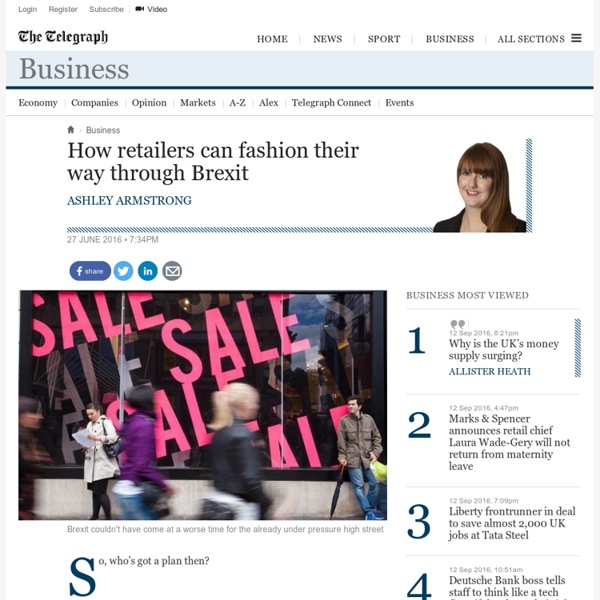



Fashion’s most iconic political statements As the date of the UK election draws nearer, politicians have turned their attention to fashion and pop culture in an attempt to wrest the youth vote. David Cameron has claimed Kardashian kinship, Nick Clegg has starred in an “Uptown Funk” election anthem, and the Labour Party has channelled Katharine Hamnett with their “Hell Yes” slogan tee. These recent antics come as no surprise – fashion and politics have long been linked. AW95’s “Highland Rape” show by Alexander McQueen saw the iconic provocateur present one of the most controversial fashion collections of all time. The pioneer of the political slogan t-shirt, Katharine Hamnett’s bold words printed on oversized tees have been mouthpieces for some of the most topical issues of the past four decades. Fashion’s enfant terrible Jean Paul Gaultier caused a sensation when he sent men down the runway wearing skirts in his 1984 Paris show “And God Created Man.”
Political Movements in Fashion Can fashion have a political conscience? The question is a recurring one, and the answers are all too often clichéd. Examples of the industry’s insensitivity and lack of sympathy (or knowledge) towards social and political realities surface regularly in the media, and stories about blackface editorials and articles praising the “beauty” and “philanthropy” of the wives of Middle East dictators make the movie Zoolander look like a realistic take on the fashion world. However (and contrary to popular belief) fashion is just as often used as a social commentary. When, in 1906, Paul Poiret freed women from the corset, the couturier was immediately hailed as a pioneer of the Women’s Liberation Movement. From Mainbocher to Yohji Yamamoto, designers have used their collections as outlets for socio-political commentary, and today’s talents are no exception. Through a surprisingly understated show, Rick Owens made an obscure comment on dominance and submission, on authority and its rejection.
From the Archives: Political Powerhouses in Vogue As the U.S. team heads to Rio in pursuit of its sixth back-to-back gold, all eyes are on Elena Delle Donne. By the time their daughter was standing two heads above her fellow kindergartners, Elena Delle Donne’s parents knew she was an unusual child, and were not terribly surprised when, aged ten, Elena joined a basketball team and led it to place third in the national championships. Recently voted Most Valuable Player of the Women’s National Basketball Association, Elena is currently poised to lead the U.S. women’s Olympic basketball team to collect its sixth consecutive gold in Rio. In an unlikely twist for somebody with Marvel-comic physical gifts, Elena’s life has also been shaped by extreme physical disability. The two sisters are extraordinarily close, often literally so. When I visit one recent morning, Elena, who has come from a hot-yoga class and lifting weights at the gym, arrives with her mother for lunch at a bustling restaurant nearby.
Zendaya schools the world on cultural appropriation In a new interview Zendaya has weighed in on the heated subject of cultural appropriation. It’s a topic that keeps rearing its head, both in the media and on Twitter – whether it’s a conversation about M.I.A.’s new video or Kylie Jenner’s cornrows. Speaking with Nylon, the 18-year-old singer and actress stressed that there’s a difference between appreciating and appropriating other cultures. “You can go about it as cultural appreciation or cultural appropriation,” she said. “You have to be very careful. “I urge people to take the extra step of knowledge and learn about things,” she continued. It’s not the first time Zendaya – who is of mixed heritage – has entered into the race debate. Like Zendaya, fellow actress Amandla Stenberg has also been outspoken on the subject of cultural appropriation, from calling out Kylie Jenner for wearing cornrows to making a video (aptly titled Don’t Cash Crop My Cornrows) which she described as a “crash discourse on black culture”.